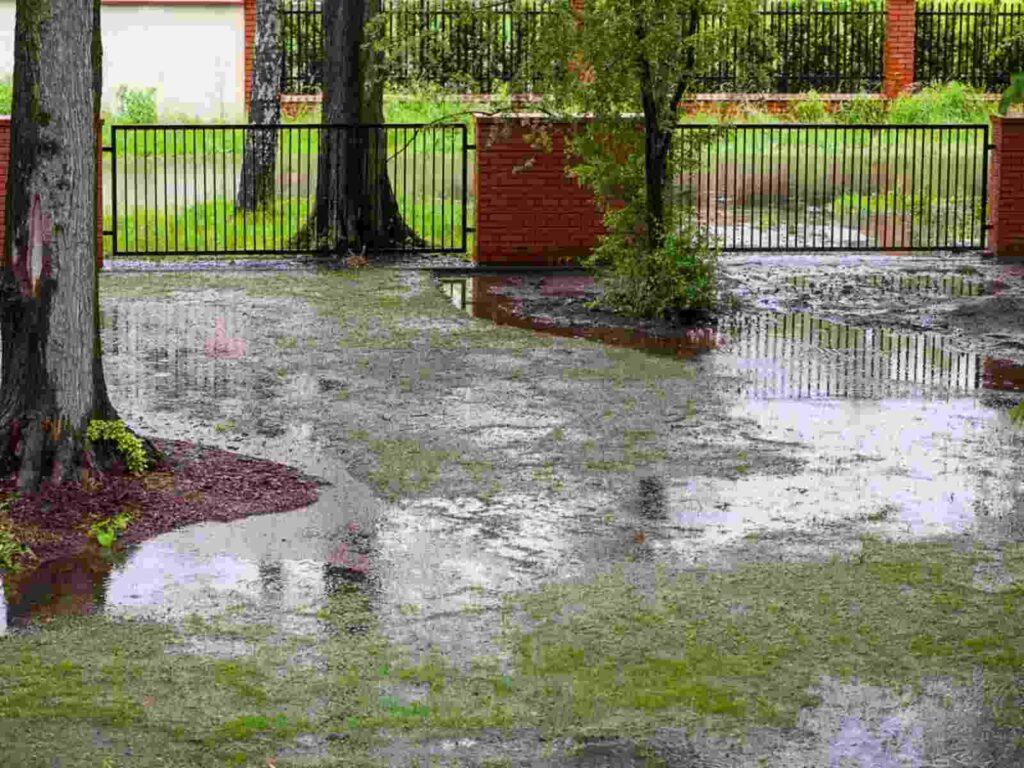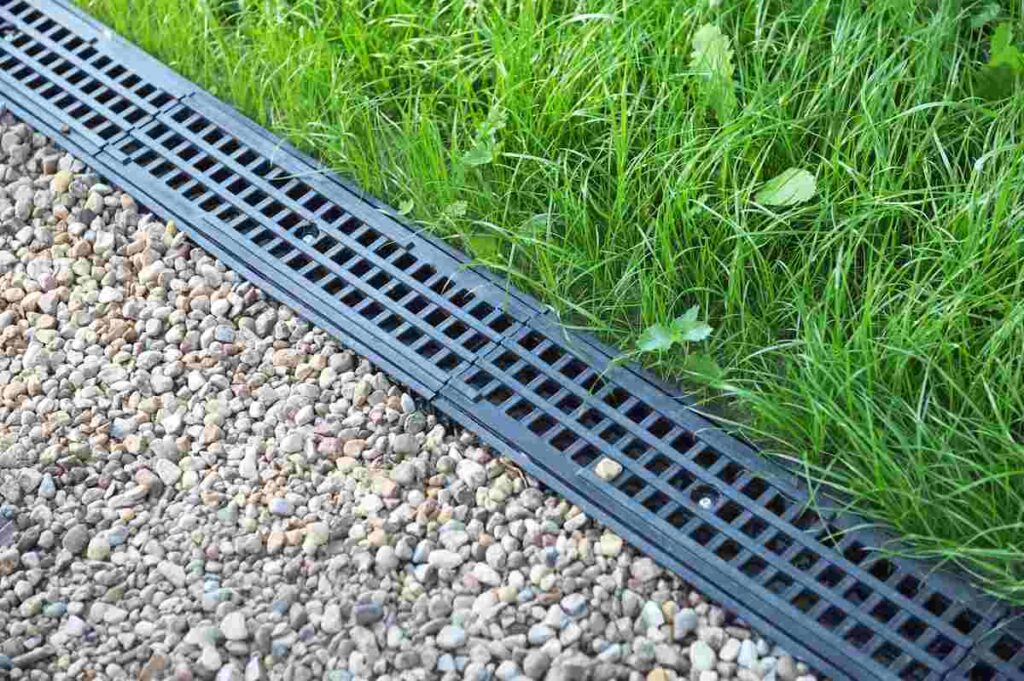In Liberty Township, maintaining a lush and vibrant lawn is a source of pride for residents, but drainage issues can quickly turn a green oasis into a soggy nightmare. Early detection and proactive solutions are key to preserving the beauty of your outdoor space. In this article Liberty Heritage Nursery Farm helps to explore the importance of identifying and addressing lawn drainage problems in their infancy, providing insights into common signs and causes. By understanding the early warning signs and implementing timely fixes, homeowners can safeguard their lawns from waterlogged troubles, ensuring a resilient and thriving landscape in Liberty Township.
Observing Water Accumulation: The First Step to Identifying Drainage Issues
Proper lawn drainage is essential for maintaining a healthy and aesthetically pleasing landscape. One of the initial steps in addressing drainage problems is keen observation after rainfall. Liberty Township, like many areas, experiences varying weather conditions that can impact soil saturation. After a rain event, take a stroll around your property to identify areas where water tends to accumulate. Puddles, saturated soil, and standing water are clear indicators of drainage issues.
Focus on the low-lying areas where water may pool, as well as sections where runoff is slow to dissipate. Noting these trouble spots early on allows for targeted interventions to prevent potential damage to your lawn and property. There is a complete guide for you how to choose drainage system for your lawn.
Inspecting Slope and Grade: Ensuring Proper Water Runoff
The overall slope and grade of your lawn play a crucial role in preventing water from pooling near your home’s foundation. Liberty Township, situated in a diverse geographical area, may have properties with varying slopes. It’s important to assess whether your lawn has a natural slope away from your home. If not, improper grading might be contributing to drainage problems.
To check the slope, use a level or a simple water hose. Water should flow away from your home, not toward it. If necessary, consider regrading the lawn to facilitate proper water runoff. This can be a DIY project for smaller areas, but for extensive grading work, consulting with a landscaping professional is advisable.

Examining Soil Composition: The Foundation of Good Drainage
Understanding the composition of your soil is fundamental to addressing drainage issues effectively. Liberty Township may have diverse soil types, including clayey and sandy soils. Each soil type has distinct drainage characteristics. Conducting a soil test helps you identify your soil’s composition and structure.
Sandy soils drain quickly but may struggle to retain nutrients. Clayey soils, on the other hand, retain water but can become compacted, hindering drainage. Based on your soil test results, amend the soil with organic matter to improve its structure and drainage capabilities. This step sets the groundwork for a healthier and well-draining lawn.
Checking for Low Spots: Identifying Problematic Depressions
Low spots or depressions in your lawn are prime locations for water to collect. These areas often become waterlogged, leading to poor drainage and potential damage to grass and plants. Identifying and addressing low spots is a critical step in improving overall drainage.
Walk around your lawn, paying attention to areas where water tends to accumulate. These depressions may be natural or caused by factors like erosion or settling. Fill these low spots with well-draining soil to encourage water to flow away from these problematic areas. Leveling the ground helps distribute water evenly and prevents concentrated pooling.
Installing French Drains: A Strategic Approach to Water Management
French drains are a valuable solution for redirecting excess water away from specific areas of your lawn. Liberty Township residents dealing with persistent drainage problems can benefit from strategically placed French drains. These drainage systems consist of a perforated pipe surrounded by gravel, allowing water to flow into the pipe and away from the problem area.
Install French drains in low spots or along the edges of your property where water tends to accumulate. This controlled drainage helps prevent waterlogging and erosion. While the installation process may require some effort, the long-term benefits in terms of improved lawn health and reduced water damage make it a worthwhile investment.
Creating Rain Gardens: Blending Aesthetics with Functionality
Rain gardens serve a dual purpose: they enhance the visual appeal of your landscape while efficiently managing water runoff. Liberty Township residents can take advantage of rain gardens to channel excess water into designated areas where it can be naturally absorbed by deep-rooted plants.
Choose a location for your rain garden based on the natural flow of water and areas prone to runoff. Select plants that thrive in both wet and dry conditions, as rain gardens experience fluctuating water levels. This eco-friendly approach not only aids in drainage but also contributes to biodiversity and adds a distinctive touch to your lawn.
Adjusting Downspouts and Gutters: Directing Water Away from the Foundation
The effectiveness of your gutter system in managing rainwater plays a significant role in preventing drainage issues around your home’s foundation. In Liberty Township, where weather patterns may vary, it’s crucial to ensure that downspouts from your roof gutters are directing water away from the foundation.
Inspect the alignment of downspouts and assess whether water is being efficiently carried away. If necessary, add extensions to downspouts to guide water further away from the house. This simple adjustment can prevent water from accumulating near the foundation, reducing the risk of basement flooding and potential structural damage.
Using Permeable Pavers: Enhancing Water Absorption in Hardscapes
Walkways and patios made of impermeable materials can contribute to water runoff and drainage problems. Liberty Township residents can address this issue by opting for permeable pavers, which allow water to pass through the surface and be absorbed by the soil below.
Consider replacing traditional hardscape materials with permeable alternatives in areas where water runoff is a concern. This environmentally friendly solution not only helps manage water but also reduces the strain on local storm water systems. It’s a sustainable choice that enhances both the functionality and aesthetics of your outdoor spaces.
Aerating the Soil: Alleviating Compaction for Improved Drainage
Soil compaction is a common issue that can impede water absorption and root growth. Liberty Township residents can promote better drainage by regularly aerating their lawns. Aerating involves perforating the soil with small holes to allow air, water, and nutrients to penetrate the grassroots.
Use aeration tools such as spiked shoes, manual aerators, or power aerators, depending on the size of your lawn. This practice not only improves water penetration but also enhances the overall health of the turf. For compacted soils, aerating at least once a year, preferably in the early spring or fall, is advisable.

Choosing Water-Tolerant Grass and Plants: Tailoring to Local Conditions
In Liberty Township, selecting grass and plants that thrive in the local climate and soil conditions is essential for maintaining a resilient and water-efficient lawn. Opt for varieties that are well-suited to the specific characteristics of your soil, whether it’s sandy, loamy, or clayey.
Water-tolerant grasses such as Bermuda grass, Kentucky bluegrass, or fescue varieties are suitable for Liberty Township. Additionally, choose plants that have deep root systems, as these can absorb water more effectively and contribute to soil stability. Tailoring your landscaping choices to local conditions minimizes the impact of drainage issues on your lawn.
Consulting with Professionals: Expert Guidance for Persistent Issues
If drainage problems persist despite your efforts, seeking professional advice is a prudent step. Liberty Township residents can benefit from consulting with landscaping professionals or drainage experts who can assess the situation comprehensively.
Professionals can conduct thorough site evaluations, identify underlying issues, and propose targeted solutions. Whether it involves advanced drainage systems, soil amendments, or landscape redesign, their expertise ensures a tailored approach to address persistent drainage challenges. Investing in professional drainage service can save both time and resources in the long run.
Regular Maintenance: Sustaining Optimal Drainage Over Time
Addressing drainage issues is not a one-time task but an ongoing process that requires regular maintenance. Liberty Township residents should incorporate regular lawn inspections into their routine, especially after heavy rainfall or significant weather events.
Regularly check for signs of water accumulation, soil erosion, or new low spots. Addressing emerging issues promptly prevents more extensive damage and ensures that your drainage solutions remain effective. Consistent maintenance contributes to the long-term health and resilience of your lawn.
Monitoring and Adjusting: Adapting to Changing Landscapes
Landscapes evolve over time, and factors such as weather patterns, plant growth, and soil conditions may change. Liberty Township residents should monitor their lawns periodically and be prepared to make adjustments as needed.
Observe how your drainage solutions perform under different conditions and be proactive in adapting to any changes. This proactive approach ensures that your lawn remains resilient in the face of evolving environmental factors.
Conclusion:
In conclusion, identifying and fixing lawn drainage issues early on in Liberty Township is essential for preserving the health and aesthetics of outdoor spaces. Timely detection allows homeowners to implement effective solutions, preventing potential damage to grass, plants, and the overall landscape. By taking proactive measures, such as proper grading, installing drainage systems, or incorporating permeable surfaces, residents can mitigate the risk of waterlogging and erosion. Early intervention not only safeguards the investment in landscaping but also contributes to the overall sustainability of the environment. In Liberty Township, a commitment to addressing drainage concerns promptly ensures lush, resilient lawns and enhances the overall appeal of the community.
